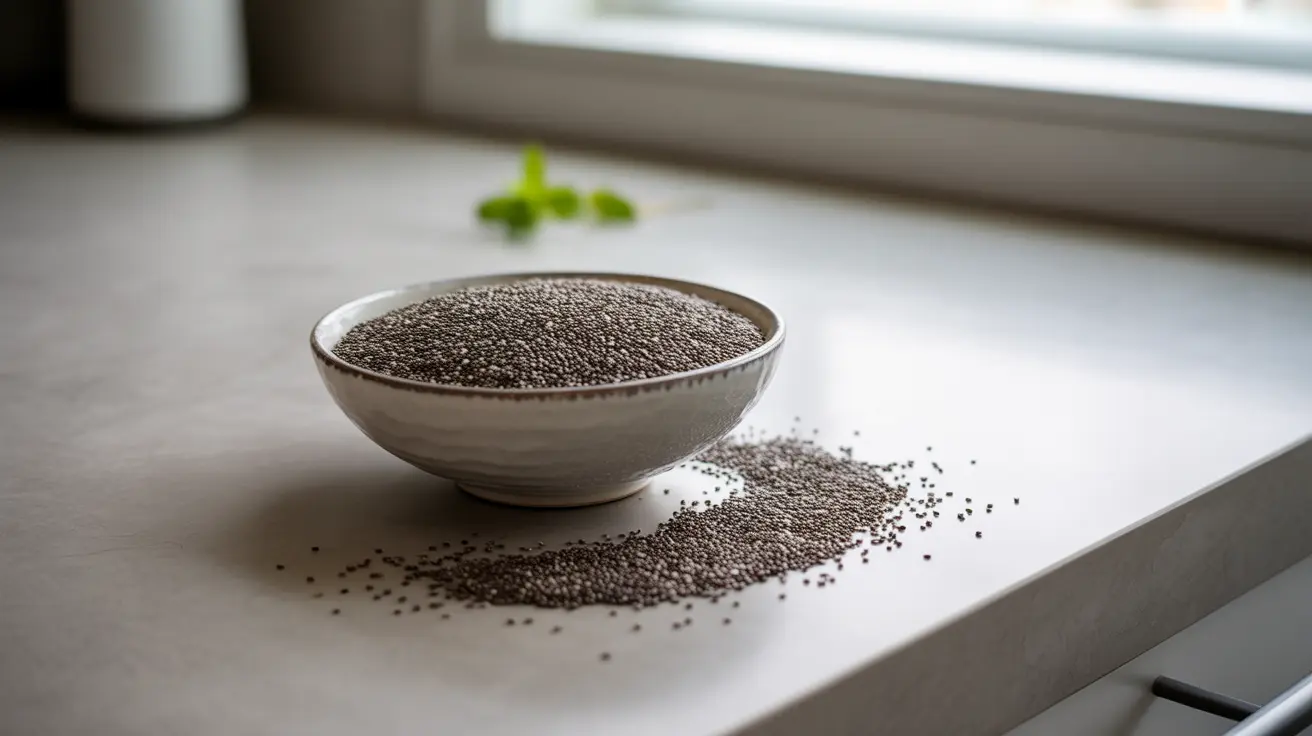Chia seeds have emerged as one of nature's most nutritionally dense superfoods, packing an impressive array of essential nutrients into their tiny form. These small but mighty seeds have been valued for centuries, dating back to ancient Mayan and Aztec civilizations, and continue to gain popularity among health-conscious individuals today.
Understanding chia seed nutrition facts is crucial for anyone looking to enhance their diet with this versatile superfood. From their exceptional fiber content to their rich omega-3 fatty acid profile, chia seeds offer numerous health benefits that make them a valuable addition to any balanced eating plan.
Essential Nutritional Components of Chia Seeds
Chia seeds contain an impressive nutritional profile per 1-ounce (28-gram) serving:
- 137 calories
- 4.4 grams protein
- 8.6 grams fat
- 11.9 grams carbohydrates
- 9.8 grams fiber
- 1.7 grams net carbs
Protein Content and Quality
Chia seeds are particularly notable for their complete protein content, containing all nine essential amino acids. This makes them an excellent protein source, especially for vegetarians and vegans. The protein in chia seeds helps support muscle growth, repair, and maintenance.
Healthy Fats Profile
One of the most significant nutritional benefits of chia seeds is their healthy fat content. They are especially rich in omega-3 fatty acids, specifically alpha-linolenic acid (ALA). This essential fatty acid plays a crucial role in heart health, brain function, and reducing inflammation throughout the body.
Vitamin and Mineral Content
Chia seeds are packed with essential micronutrients that support overall health:
- Calcium (18% DV per serving)
- Phosphorus (27% DV per serving)
- Magnesium (30% DV per serving)
- Zinc (12% DV per serving)
- Iron (12% DV per serving)
Antioxidant Properties
These seeds contain powerful antioxidants that help protect cells from damage caused by free radicals. The antioxidants also help preserve the seeds' healthy fats, preventing them from going rancid.
Digestive Health Benefits
The high fiber content in chia seeds makes them particularly beneficial for digestive health. When exposed to liquid, chia seeds form a gel-like substance that can aid digestion and help maintain regular bowel movements. This soluble fiber also acts as a prebiotic, supporting the growth of beneficial gut bacteria.
Heart Health Support
The combination of omega-3 fatty acids, fiber, and protein in chia seeds contributes to cardiovascular health. Regular consumption may help:
- Reduce blood pressure
- Lower bad cholesterol levels
- Decrease inflammation
- Support healthy blood sugar levels
Frequently Asked Questions
What are the main nutritional benefits of chia seeds?
The main nutritional benefits of chia seeds include high levels of fiber (9.8g per ounce), complete protein (4.4g per ounce), omega-3 fatty acids, and essential minerals like calcium, magnesium, and phosphorus. They're also rich in antioxidants and contain no cholesterol.
How much fiber and protein do chia seeds contain per serving?
One ounce (28 grams) of chia seeds contains 9.8 grams of fiber and 4.4 grams of protein. This represents about 39% of your daily fiber needs and provides high-quality complete protein with all essential amino acids.
Can chia seeds help improve heart health and lower cholesterol?
Yes, chia seeds can support heart health through their high omega-3 fatty acid content, soluble fiber, and anti-inflammatory properties. These components work together to help reduce bad cholesterol levels, regulate blood pressure, and decrease inflammation in the cardiovascular system.
What vitamins and minerals are found in chia seeds?
Chia seeds are rich in calcium, phosphorus, magnesium, zinc, iron, and several B vitamins. They also contain trace amounts of potassium, vitamin A, and vitamin C. This diverse mineral profile supports bone health, energy metabolism, and overall cellular function.
How do chia seeds support digestion and gut health?
Chia seeds support digestive health through their high fiber content and gel-forming properties. When consumed, they form a prebiotic gel that aids digestion, promotes regular bowel movements, and feeds beneficial gut bacteria. The soluble fiber also helps slow digestion and maintain steady blood sugar levels.




